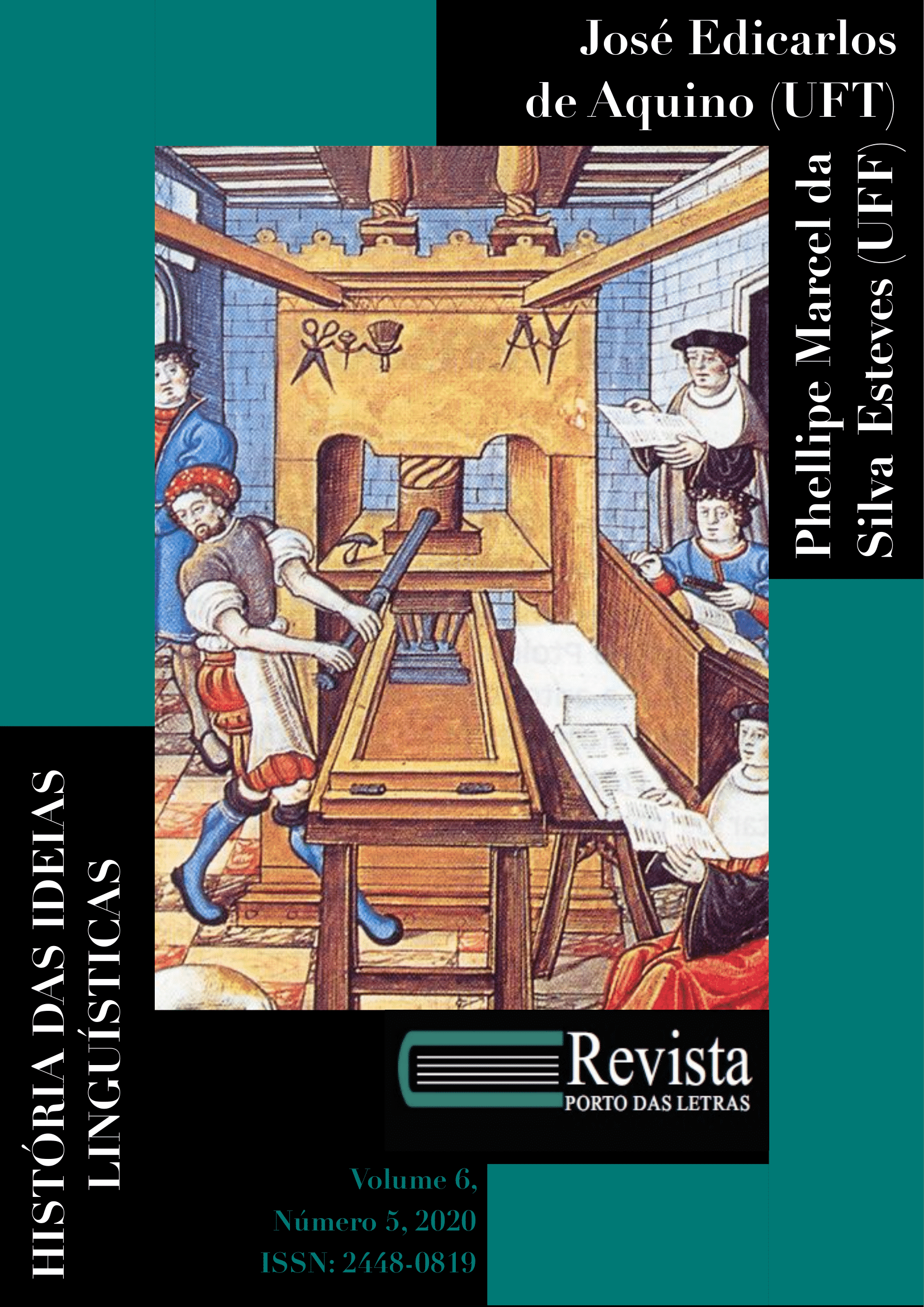Os sentidos do nome Língua Brasileira de Sinais/Libras no texto da lei
Keywords:
Língua Brasileira de Sinais; Libras; designação; acontecimento enunciativo; política de línguasAbstract
This article aims to analyze the functioning of the designation of the name Língua Brasileira de Sinais (Brazilian Sign Language), or of its abbreviated form Libras, in the enunciative event of the text of the Federal Law No. 10,436, 24 April 24, 2002, a law that is regularly known as “the Libras law”. It is a work that takes part of the reflections made by the Brazilian team of History of Linguistic Ideas and which mobilizes the Semantics of the Event as its theoretical-methodological device. From the analysis contained herein, we will show that, despite representing an important advance from a political point of view, the text of the referred law points to an enunciation that hegemonically traces as its past a memorable that we will call “pathologist” and another one that we will call “communicativist”. These two memorables do not appear, in the enunciative event analyzed, in a relation of opposition/contradiction; on the contrary, they support a set of semantic determinations for the name Língua Brasileira de Sinais/Libras as being the name of a code, and not of a language itself. In addition, the semantic domains of determination will also show that the way the name Língua Brasileira de Sinais/Libras means in the space of Brazilian legal enunciation gives us evidence of a weakened language policy, since the designation of the referred name means the language, as well as its speakers, from the place of the pathological.
References
BISOL, Cláudia; SPERB, Tania Maria. Discursos sobre a surdez: deficiência, diferença, singularidade e construção de sentido. Psicologia: teoria e pesquisa, Brasília, n. 1, v. 26, pp. 7-13, jan-mar. 2010.
BRASIL. Lei nº 10.436 de 24 de abril de 2002. Brasília: Presidência da República, Casa Civil, Subchefia para Assuntos Jurídicos. Disponível em: <http://www.planalto.gov.br/ccivil_03/leis/2002/l10436.htm>. Acesso em: 05/11/2019.
______. Decreto nº 5.626 de 22 de dezembro de 2005. Brasília: Presidência da República, Casa Civil, Subchefia para Assuntos Jurídicos. Disponível em: <http://www.planalto.gov.br/ccivil_03/_Ato2004‐2006/2005/Decreto/D5626.htm>. Acesso em: 07/10/2019.
DUCROT, O. Princípios de semântica linguística: dizer e não dizer. São Paulo: Cultrix, 1977.
GUIMARÃES, Eduardo. Semântica: enunciação e sentido. Campinas: Pontes Editores, 2018.
GUIMARÃES, E. Semântica do acontecimento: um estudo enunciativo da designação. 4. ed. Campinas: Pontes Editores, 2017.
_____. A enumeração: funcionamento enunciativo e sentido. Caderno de estudos linguísticos, Campinas, nº 51(1), p. 49-68, jan./jun. 2009.
_____. Domínio semântico de determinação. In: _____.; MOLLICA, Maria Cecília. (Orgs.). A palavra: forma e sentido. Campinas: Pontes; RG Editores, 2007.
HYMES, D. On communicative competence. In: PRIDE, J. B.; HOLMES, J. (Orgs.). Sociolinguistics. Selected readings. Harmondsworth: Penguin, 1972. pp. 269-293.
SAUSSURE, F. Curso de linguística geral. 27. ed. São Paulo: Cultrix, 2006.
Downloads
Published
How to Cite
Issue
Section
License
Os autores concordam com os termos da Declaração de Direito Autoral, que se aplicará a esta submissão caso seja publicada nesta revista (comentários ao editor podem ser incluídos a seguir).

